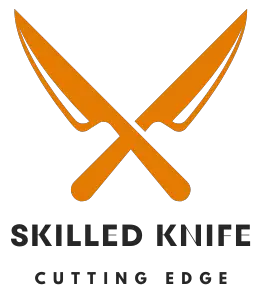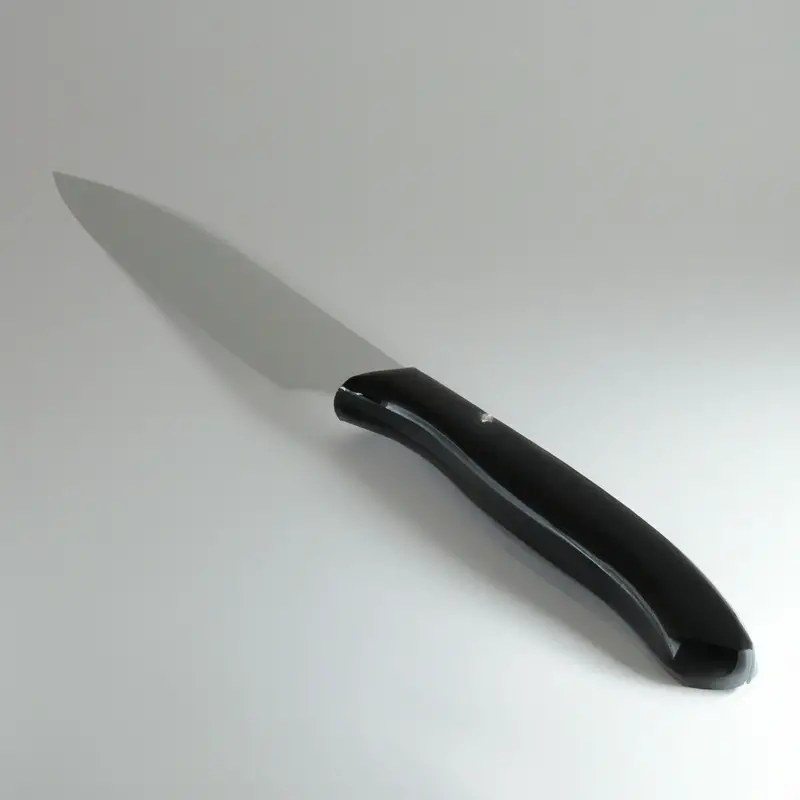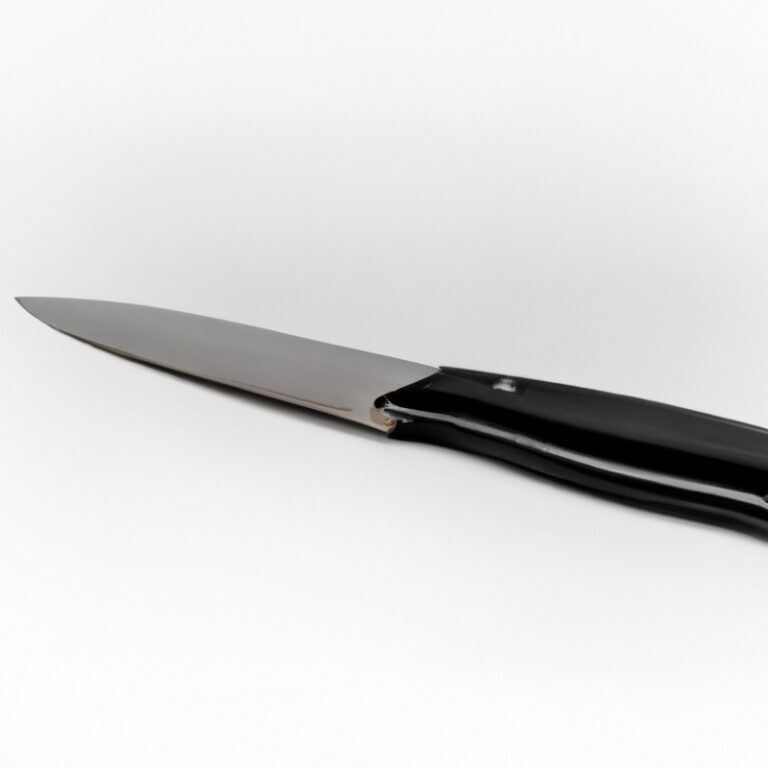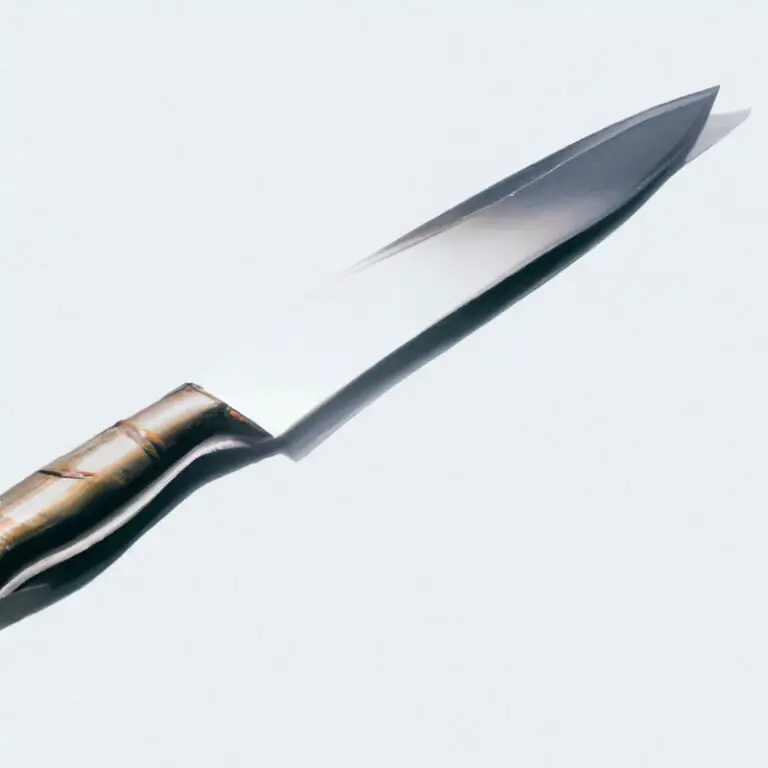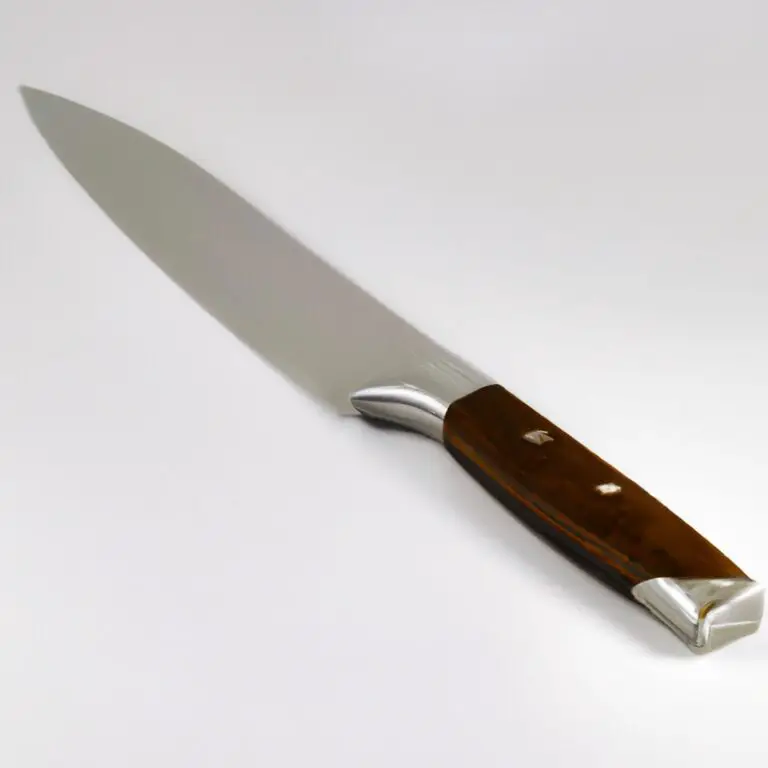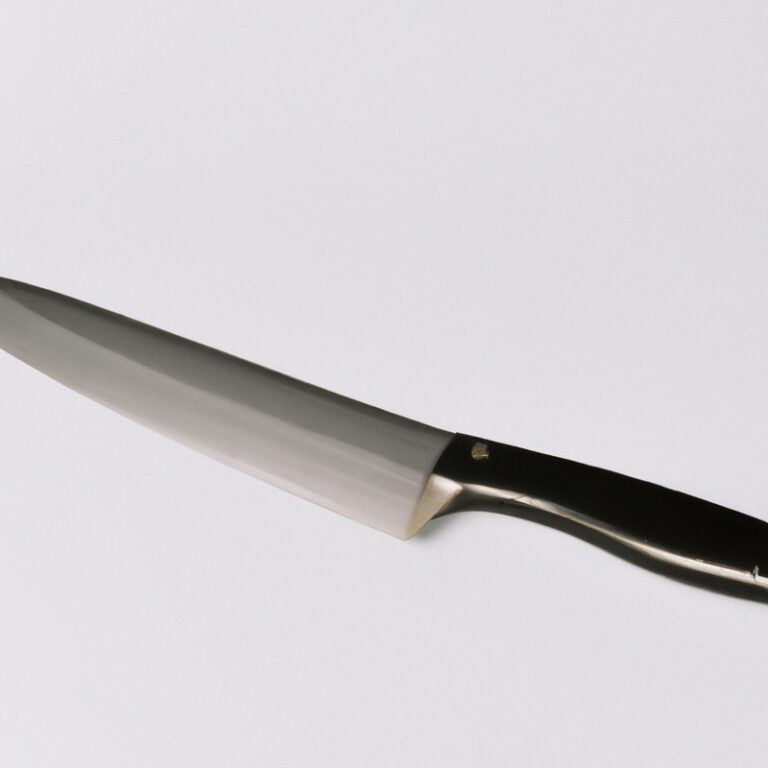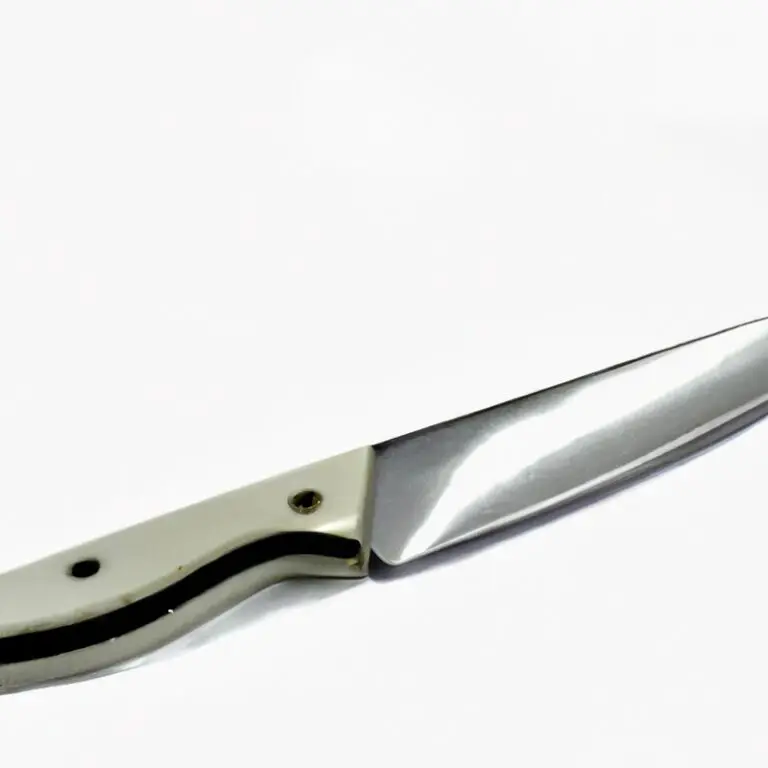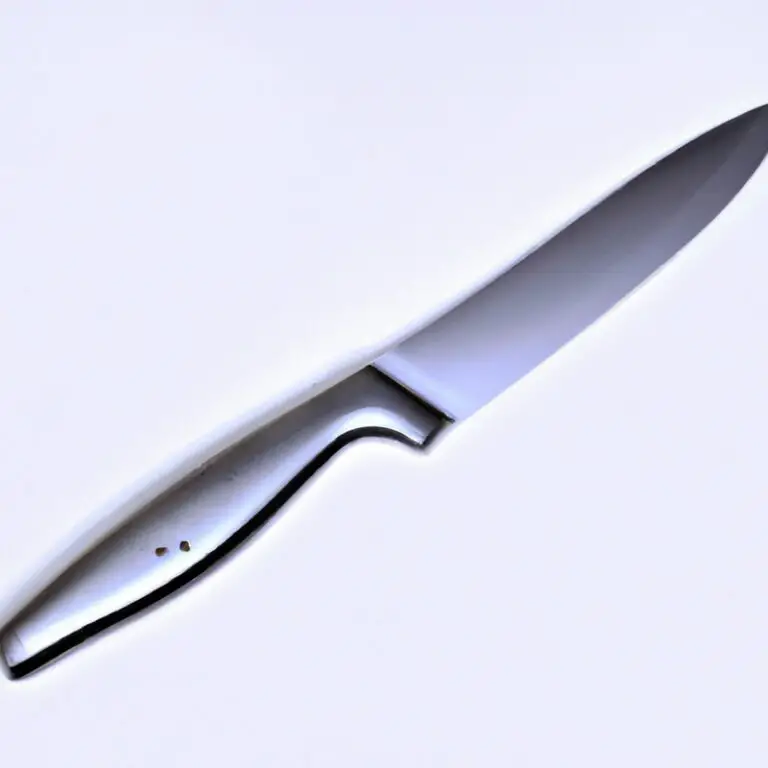How Does Knife Steel Influence Corrosion Resistance In Combat Knives?
Key Takeaways:
- Knife steel composition significantly affects corrosion resistance in combat knives.
- Stainless steels with high chromium content exhibit superior corrosion resistance in combat knives.
- Carbon steels offer excellent durability but require proper maintenance to prevent corrosion.
- Factors such as exposure to moisture and the blade’s surface finish also influence corrosion resistance in combat knives.
Have you ever wondered why some combat knives rust and corrode faster than others? Well, the answer lies in the type of steel used in their construction.
As a knife enthusiast and expert, I’ve delved deep into the world of corrosion resistance in combat knives, and let me tell you, it’s fascinating! In this article, we’ll explore the relationship between knife steel and corrosion resistance, and how different factors like composition, hardness, and surface finish play a vital role.
We’ll also dive into various types of knife steel and their corrosion resistance capabilities, helping you choose the perfect steel for your combat knife. So, let’s sharpen our knowledge and uncover the secrets of combat knife steel!
| Knife Steel | Corrosion Resistance |
|---|---|
| Stainless Steel | High |
| Carbon Steel | Low |
| Damascus Steel | Medium |
| Ceramic | High |
Understanding Corrosion Resistance in Combat Knives
What Causes Corrosion in Combat Knives?
Corrosion in combat knives is primarily caused by exposure to moisture and environmental elements.
When the knife steel comes into contact with water or high humidity, a chemical reaction occurs that leads to the formation of rust and corrosion.
In addition, exposure to salts, acids, and other corrosive substances can accelerate the corrosion process.
Factors such as the composition of the knife steel, surface finish, and maintenance practices also play a role in determining the extent of corrosion.
Regular cleaning, drying, and proper storage are important in preventing corrosion in combat knives.
Why is Corrosion Resistance Important in Combat Knives?
Corrosion resistance is crucial in combat knives because it helps maintain the integrity and performance of the blade. Combat knives are often exposed to harsh environments, including moisture, saltwater, and other corrosive elements.
Corrosion can weaken the blade, leading to potential breakage and reduced effectiveness.
A combat knife with excellent corrosion resistance will last longer, require less maintenance, and provide reliable performance even in challenging conditions. It ensures that the knife remains functional, durable, and ready for use when needed the most.
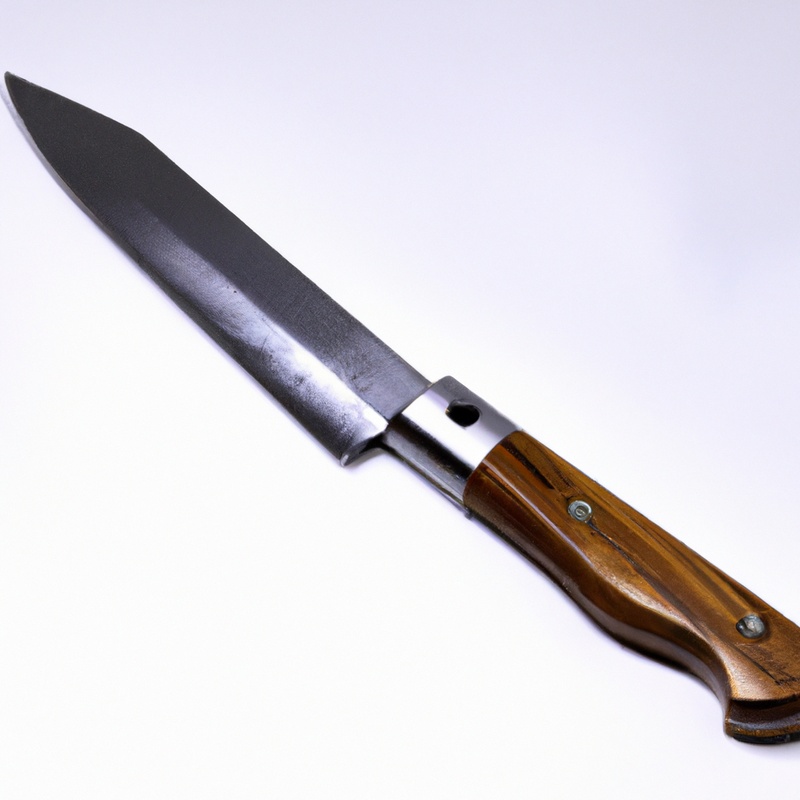
Role of Knife Steel in Corrosion Resistance
The knife steel used in combat knives plays a vital role in determining their corrosion resistance.
Different types of steel have varying levels of resistance to corrosion, which is the process of metal deteriorating due to exposure to moisture and other environmental factors.
Stainless steel, for example, is known for its excellent corrosion resistance, while carbon steel requires more maintenance to prevent rust.
The composition, hardness, and surface finish of the steel also affect its resistance to corrosion.
It’s important to choose the right knife steel to ensure optimal corrosion resistance and longevity of your combat knife.
Factors Affecting Corrosion Resistance in Knife Steel
Composition of Knife Steel and Corrosion Resistance
The composition of knife steel plays a significant role in its corrosion resistance. To achieve good corrosion resistance, knife steel must contain elements that are resistant to rust and oxidation.
Stainless steels, for example, have a high chromium content, which forms a protective layer on the surface of the steel, preventing corrosion.
Additionally, other alloying elements like molybdenum and nickel can enhance the steel’s resistance to corrosion. Different combinations of elements in the composition can result in varying degrees of corrosion resistance.
It’s important to select a knife steel composition that aligns with your specific corrosion resistance requirements.
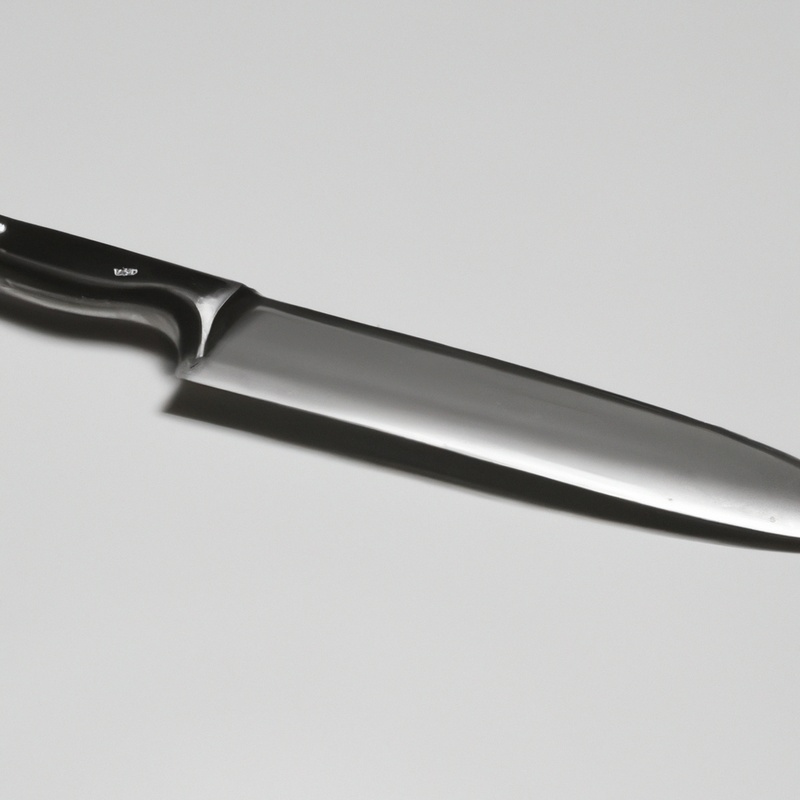
Hardness and Corrosion Resistance Relationship in Knife Steel
Hardness and corrosion resistance are two important factors to consider when evaluating the performance of knife steel. In general, harder knife steel tends to have higher corrosion resistance.
This is because harder steel forms a denser surface, making it more difficult for corrosive elements to penetrate and cause damage.
However, it’s worth noting that extreme hardness can also make the steel more brittle, so there needs to be a balance. By finding the right hardness level, knife makers can create blades that offer both excellent corrosion resistance and sufficient durability for combat knives.
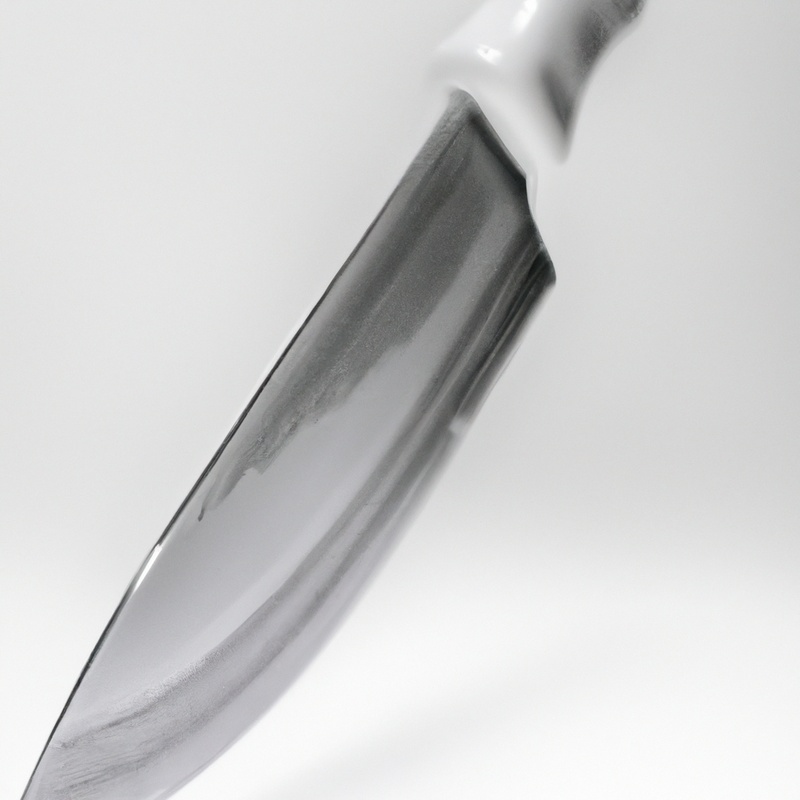
Surface Finish and its Impact on Corrosion Resistance
Surface finish plays a significant role in the corrosion resistance of combat knives. A smooth and polished surface finish helps prevent moisture and contaminants from adhering to the knife, reducing the likelihood of corrosion.
Rough or uneven finishes, on the other hand, can create crevices and micro-pits that trap moisture and promote corrosion.
It is important to choose a knife with a high-quality surface finish to maintain its corrosion resistance and ensure its longevity. Regular maintenance, including cleaning and lubricating the knife, will also help preserve its surface finish and protect against corrosion.
Different Types of Knife Steel and their Corrosion Resistance
Stainless Steel: Corrosion-Resistant Option for Combat Knives
Stainless steel is an excellent choice for combat knives due to its corrosion-resistant properties.
It contains chromium, which forms a protective layer that helps prevent rust and corrosion.
This makes stainless steel knives more durable and reliable in harsh conditions.
Additionally, stainless steel is easy to maintain and clean, ensuring the longevity of your combat knife.
It’s important to note that there are different grades of stainless steel, so be sure to choose one that meets your specific needs for combat situations.
Carbon Steel: Balancing Corrosion Resistance and Other Properties
Carbon steel is a widely used material for combat knives due to its excellent balance of corrosion resistance and other properties.
It contains a higher percentage of carbon compared to stainless steel, which gives it superior hardness and edge retention.
However, carbon steel is more prone to rust and corrosion if not properly cared for.
To maintain its corrosion resistance, regular cleaning, drying, and oiling of the blade is crucial.
Additionally, choosing a carbon steel with corrosion-resistant elements like chromium can further enhance its durability.
Remember to strike the right balance between corrosion resistance and other desired properties when selecting carbon steel for your combat knife.
High Carbon Stainless Steel: Best of Both Worlds?
High carbon stainless steel offers the best of both worlds when it comes to knife steel.
It combines the strength and durability of carbon steel with the corrosion resistance of stainless steel.
This makes it an excellent choice for combat knives that need to withstand tough conditions while also preventing rust and corrosion.
The high carbon content provides excellent edge retention and toughness, while the stainless steel component adds the necessary corrosion-resistant properties.
With high carbon stainless steel, you can have a reliable and long-lasting combat knife that can handle any situation.
Choosing the Right Knife Steel for Optimal Corrosion Resistance
Factors to Consider when Choosing Knife Steel
When choosing knife steel, there are several factors to consider.
- Corrosion resistance: Look for steel with high corrosion resistance to ensure durability.
- Hardness: Consider the desired hardness level for your knife’s intended use.
- Toughness: Evaluate the steel’s ability to withstand impact and stress without breaking.
- Edge retention: Determine how well the steel holds its edge over time.
- Ease of sharpening: Consider the steel’s ability to be easily sharpened and maintained.
- Cost: Evaluate your budget and find a balance between performance and price.
- Specific requirements: Consider any specific requirements you have for your knife, such as heat resistance or stain resistance.
By taking these factors into account, you can choose the right knife steel that meets your needs.
Comparing Different Knife Steel Types for Corrosion Resistance
When comparing different types of knife steel for corrosion resistance, there are a few key factors to consider.
- Stainless steel is often the go-to choice for combat knives due to its high corrosion resistance. It contains chromium, which forms a protective layer on the steel’s surface, preventing rust and corrosion.
- Carbon steel, on the other hand, is known for its durability and strength but is more prone to corrosion. Regular maintenance and oiling are needed to prevent rust from forming.
- High carbon stainless steel combines the best of both worlds, offering excellent corrosion resistance and robustness. It is a popular choice for combat knives that require both strength and durability.
When selecting the right knife steel for optimal corrosion resistance, consider the specific requirements and usage of the knife.
Different steel types offer varying degrees of corrosion resistance, so choose one that suits your needs best.
Balancing Corrosion Resistance with Other Knife Requirements
When choosing a combat knife, it’s important to balance corrosion resistance with other requirements.
While corrosion resistance is crucial, you also need to consider factors such as strength, edge retention, and ease of sharpening.
Different knife steels offer varying levels of corrosion resistance, so it’s essential to understand your specific needs.
Stainless steel is a popular choice for its high corrosion resistance, but it may sacrifice some hardness.
Carbon steel, on the other hand, offers excellent hardness but requires more maintenance to prevent corrosion.
High carbon stainless steel combines the best of both worlds, providing good corrosion resistance and durability.
Ultimately, finding the right balance depends on your priorities and how you plan to use the knife.
Maintaining Corrosion Resistance in Combat Knives
Proper Cleaning Techniques to Prevent Corrosion
To prevent corrosion in combat knives, proper cleaning techniques are essential.
Here are some tips to keep your knife in top condition:
- Clean your knife after every use: Use mild soap and warm water to remove any dirt, grime, or residue. Gently scrub the blade and handle with a soft cloth or sponge.
- Dry your knife thoroughly: Moisture is a leading cause of corrosion. Ensure your knife is completely dry before storing it. Pay special attention to crevices and hinges.
- Use a corrosion inhibitor: Applying a thin layer of a corrosion inhibitor, such as oil or a specialized knife lubricant, can help protect the steel from moisture and corrosion.
- Avoid harsh cleaners: Abrasive cleaners and chemicals can damage the knife’s steel and protective coatings. Stick to mild soaps and non-abrasive cleaning agents.
- Store your knife properly: Keep your knife in a dry, ventilated area away from direct sunlight and extreme temperatures. A sheath or blade cover can provide an additional layer of protection.
The Role of Lubrication in Corrosion Prevention
Lubrication plays a vital role in preventing corrosion in combat knives.
When you apply lubricant to the blade and other metal parts, it forms a protective barrier against moisture and contaminants.
This barrier helps to prevent the onset of corrosion and keeps the knife in good condition.
Make sure to use a lubricant that is specifically designed for metal and has anti-corrosion properties.
Applying lubricant regularly, especially after cleaning and before storage, will help maintain the corrosion resistance of your combat knife.
Remember to follow the manufacturer’s instructions for best results.
Storage and Safe Practices for Long-Term Corrosion Prevention
To ensure long-term corrosion prevention in combat knives, proper storage and safe practices are essential. Here are some tips:
- Clean and dry the knife thoroughly before storage to remove any moisture or dirt that can contribute to corrosion.
- Use a knife sheath or protective cover to shield the blade from exposure to air and moisture. This helps prevent oxidation and rusting.
- Store the knife in a cool, dry place with controlled humidity levels. Avoid storing it in areas prone to high moisture or extreme temperature fluctuations.
- Apply a rust inhibitor or corrosion-resistant coating to the blade for added protection. These products create a barrier between the steel and environmental factors that cause corrosion.
- Regularly inspect and maintain the knife to identify any signs of corrosion or damage. Promptly address any issues to prevent further deterioration.
Final Verdict
Understanding the role of knife steel in corrosion resistance is crucial for combat knife enthusiasts. We’ve explored the causes of corrosion, why it’s important to combat knives, and the factors that affect corrosion resistance in knife steel.
Different types of knife steel, such as stainless steel and carbon steel, offer varying degrees of corrosion resistance.
When selecting the right knife steel, it’s essential to consider factors like composition, hardness, and surface finish. Proper maintenance, including cleaning, lubrication, and storage, plays a significant role in maintaining corrosion resistance.
By choosing the right knife steel and implementing proper maintenance practices, combat knife users can ensure long-lasting corrosion resistance and optimal performance.
